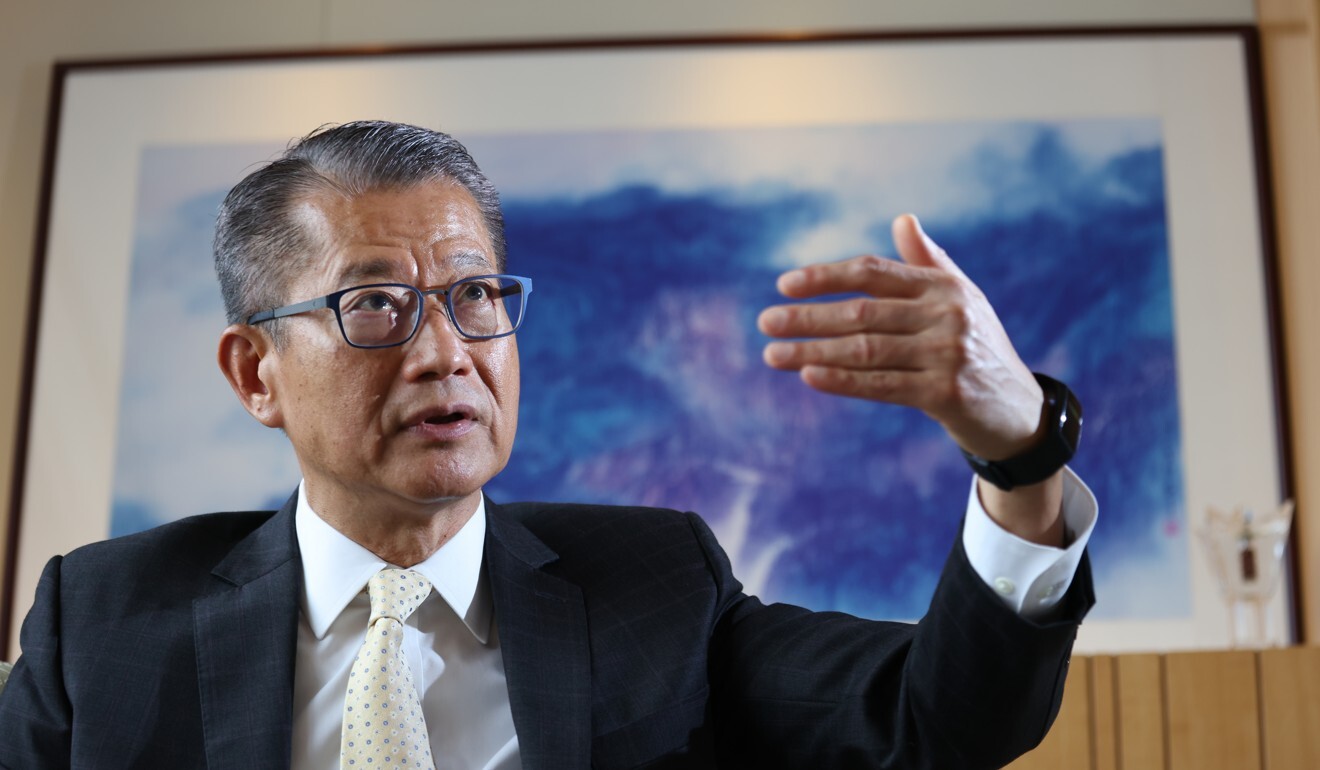
Hong Kong to take ‘at least until next year’ to draft local version of anti-sanctions law
- Beijing is expected to add the national law that punishes firms for carrying out Western sanctions to Hong Kong’s mini-constitution on Friday
- While local authorities are set to draft their own version, lengthy talks with the business community will be needed before a bill is drawn up, sources say
Hong Kong authorities will work on a local draft of the national anti-sanctions law until at least next year before sending it to legislators as time is needed to gauge the concerns of the business community, the Post has learned.
Given the deep apprehension among foreign investors and businesses over the new regulatory regime, financial officials needed more information from Beijing before consultations could begin, lawmakers said.
China’s anti-sanctions law: what is it and how will it take effect in Hong Kong?
Some clarity was expected from Huang Liuquan, a deputy director of the State Council’s Hong Kong and Macau Affairs Office, when he visited the city next week to brief legislators and officials about the nation’s latest five-year policy blueprint, they added.
“Huang will be meeting many people during the trip,” said financial services sector lawmaker Christopher Cheung Wah-fung. “I think many people hope to make use of this opportunity to communicate with him and tell him their opinions [about the new law].”
The anti-foreign sanctions law, which mainland China passed in June, empowers authorities to seize assets from entities that implement sanctions against the country. Businesses can be held liable if they refuse to help Beijing carry out countermeasures.

The government … has to get a green light from the central government on how much it can do
A source said that given the importance of upholding the city’s financial and international status, the government had no choice but to address corporate concerns.
“The mainland’s version is a bit too broad, which has caused great fear among international businesses in the city,” the insider said. “Some suggested the local version should be more specific so as to alleviate worries, while others also think a vague law could give the government flexibility.
“The government therefore has to get a green light from the central government on how much it can do.”
Several of the law’s articles have caused especially deep concern. Under articles 11 and 12, no entity or person in the country is permitted to help another nation implement measures against China and are instead required to help Beijing carry out retaliatory measures.
Article 14 states organisations and individuals who refuse to implement or cooperate with retaliatory measures will be “subject to legal liability”. Steps available include denying visas and deporting culprits, as well as freezing an individual’s assets.
‘Ambiguity’ of anti-sanctions law will ensure flexibility for banks: insiders
Two government sources said the drafting of the local legislation would be overseen by Chief Executive Carrie Lam Cheng Yuet-ngor and financial secretary Chan, and involve the bureaus for financial services, security and constitutional and mainland affairs. The Monetary Authority, the city’s de facto central bank, would also play a role.
“The government has not decided which bureau should take the lead, while the financial secretary has been listening to views in society,” a source said.
The legislative process would be lengthy as authorities needed to listen to concerns, thoroughly study the matter and consider how each article could be applicable in the city, the insider added.
Political scientist Chan Wai-keung, of Polytechnic University, said he believed the central government would hope the city’s administration would discuss the matter with legal experts and business leaders.
“The recent news [about the law] may have already created a deterrent effect on the West or foreign firms here. Those firms may even lobby their own governments not to resort to any sanctions or else the firms themselves could become victims when Hong Kong initiates anti-sanction measures,” he said.
Chan believed that the financial secretary and other senior law-enforcement officials would be tasked with forming a special committee to monitor compliance and ensure Hong Kong’s international reputation was not be tarnished.
But Hui Ching, research director at the Hong Kong Zhi Ming Institute, was sceptical about how even a localised version could be enforced without damaging the city’s financial system.
“Hong Kong’s financial system basically operates on the Western system … and uses the US dollar-dominated global payments system,” he said. “If Hong Kong is to launch countermeasures to sanction the banks here, it will unavoidably interrupt international financial transactions. It will spark a financial war with the United States. Can Hong Kong afford it?”
Additional reporting by Tony Cheung



